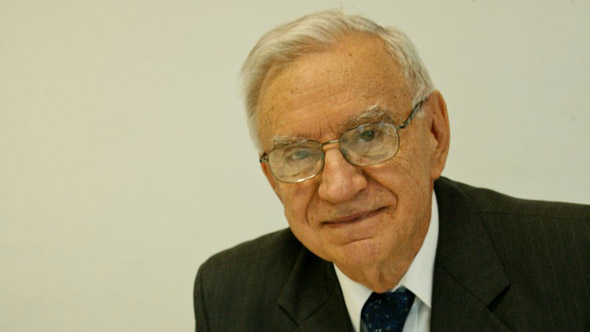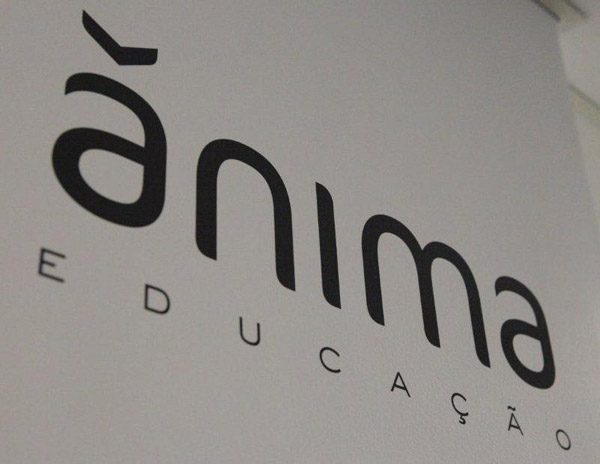Ozires Silva: Brazilian Education, Embraer, Innovation & Research
Ozires Silva, Rector of Unimonte and Founder of Embraer
Ozires Silva, current Rector of Unimonte and Founder of Embraer argues that the education system in Brazil should be reformed in order to face a competition that is growing internationally. He also talks about entrepreneurship, the founding of Embraer and the importance of innovation and research for the future of Brazil.
Interview with Ozires Silva, Rector of Unimonte and Founder of Embraer

Many argue that the Brazilian economy relies on commodities, exports of raw materials, and agricultural commodities in particular. The World Bank has warned Brazil is not on the path of sustainable development. Brazil has not done much in the technology and innovation field. How do you view the issue, and how sustainable is development in Brazil?
Students have to have the best system of education in order to compete in a world that has changed dramatically over the past fifty years. Competitors are no longer in your own country, and if we fail to improve our education, Brazil will surely have very serious economical and social problems in the future.
One thing I would like to firmly assure is that the population as a whole is highly impacted by all the criteria of sustainability. The population of Brazil broadly supports the efforts of the companies and the government to achieve sustainability, including a concern for the environment. Development in Brazil has a good potential to be sustainable; there is a process of change. Right now, the production of ethanol is not sufficient compared to gasoline, since the country uses ethanol just in private automobiles, not in buses or trucks. It is not sufficient just to create an alternative, it is also necessary to spread it to overall use. Today, ethanol is not a real competitor of gasoline.
As for education, you have been trying to fight a war against the Brazilian government in order to amend some of the legislation. What should the Brazilian domestic reform be in the field of education?
We are working on several ways to improve the education system in Brazil. Initially, we made a proposal in order to replace tax over the schools by incentives. In Brazil, schools are taxed and the private schools must collect taxes directly from the payments of students. Most of the graduate students are in private institutions and surely that is not acceptable.
Another point is regarding endowments. Donations in Brazil are also taxed. Instead of charging donations, the suggestions are in the sense of stimulating the private sector to put money into Brazil’s education and not just leave it to the government to fund schools.
The third point is that whenever companies do training for employees, the government charges the company. We are also trying to get the government to start the deregulation of the system. The teaching system is highly regulated including the curricula, the process of teaching, schools are inspected by the federal government. It is not free to create a school, since a previous approval is required and takes a long period of time to be granted. It has to be remembered that Brazil is a continental country as large as the United States and not all people within its regions are the same. In terms of education, you have to respect the local culture and how the people carry on.

Can you give a warning about what would happen to Brazil, if the education sector was not reformed?
It is very serious because the world today is global. Competitors are global. The diagnosis we drawn up about the education system in Brazil is that it is not doing its best. Nowadays, the competition in the world is regarding high competence and knowledge. In this condition, you have to have the best labor you can produce. Students have to have the best system of education in order to compete in a world that has changed dramatically over the past forty or fifty years. Competitors are no longer in your own country, and if we fail to improve our education, Brazil will surely have very serious economical and social problems in the future.
A group of global investors said that commodities are the future; it’s not innovation but agricultural commodities. With the exponential growth of human population, Brazil is well positioned to capitalize on this opportunity as an exporter of raw materials and agricultural commodities, such as soybeans. Shouldn’t Brazil orient itself toward this field instead of technology?
I strongly disagree with this statement; of course commodities are important. All of us need raw materials to produce all the products we use. Also the world population is fed by primary products. And history shows clearly that countries, which are commodity producers, have not either prestige or importance. We have to put value on the products that we produce. If you calculate in micro-economy a country that produces just commodities, it cannot close its accounts for the products that it needs because of the difference of price. Imagine that there are countries producing high value products and those that are producing low value products. If the latter want to exchange products, it will not work in economic terms.
Can you tell us more about your company Pelenova? What is it about, what does it produce and what challenges does it face?
In the world today, the number of older people is constantly growing. Some forecasts from the United Nations predict that within the next five years there will be more old people in the world than young. Young people, in general, do not need medicine, medical doctors, hospitals; sometimes, they use them, but old people utilize them much more. What can be done to increase the quality of life of the elderly? Using intelligent products that are being developed in the world extensively, and more research on this is needed. This is the job of Pelenova.
Brazil claims that it has one of the best biodiversity in the world, but it is not utilized to its fullest. The knowledge of the Indians on the uses of the various plant and herb varieties in the Amazon has barely been expanded upon since Brazil was discovered. Our researchers have discovered at least thirty different products that are good for health just in latex! Pelenova has a good potential to be an important company. Aging people need much more medicine and medical care.
What about your own experience with doing business in Brazil? What challenges and opportunities have you encountered?
We are not very well-ranked by the World Bank’s different parameters for doing business. The Brazilian people are creative but are restricted from succeeding by legislation, laws, and a long list of other things. In the studies carried out by World Bank Brazil is one of the first country in rate of creation of new companies but it is also the one where new companies shut down and close their doors in less than two years! This means that the general system does not guarantee that a company created today would be successful in the future.

When I was a young man, I used to visit an aero-club in my home-town. All their aircrafts were American-made. I asked myself: Why? We are a large, continental country – why don’t we produce aircrafts like the United States? I started to think about what I could do. So, I could begin my career as an officer in the Brazilian Air Force and later I received a scholarship to study and I graduated with a degree in aeronautic engineering. Suddenly I faced myself with tools in hands! It was possible to join a small team of enthusiastic people. It took eight years of failures. We could not convince Brazilian companies to enter a market niche identified. No one accepted our first prototype designed for the Regional Airline Services. We tried to collect private capital to create a new company to launch that prototype into a series production. No success! At one point, we received an offer to speak directly with the President of Brazil. He heard our history and said “you’re right, let us do something about this.” He decided to create a government initiative to produce aircraft. The aircraft belonged to the government for the first twenty years. In 1991, we started the privatization of this company and today it is private and more flexible. Today, Embraer is one of the largest producers of commercial planes in the world.
You are president of the World Trade Center and have plans to open in other cities of Brazil. I think the fact that you want to expand shows how Brazil is moving and expanding. Can you tell us more about the World Trade Center?
The World Trade Center is a remarkable organization. It was an American initiative created in the 1970’s as a world trade association with the vision that external trade would increase in the future. Today, it includes about one million companies from all over the world. We have bases in about 330 cities around the world. The World Trade Center provides easy communicability between corporations. The great success of the World Trade Center has been in the United States where it is very active in twenty seven different cities.
Can you tell us about potential agreements with other universities, such as your agreement with Le Cordon Bleu in France? Are you looking at specific areas to sign agreements on?
We are trying to spread especially in the area of culture. Through education, we can re-educate the people in order to think differently and create new opportunities and jobs. We are looking for areas of cooperation with other universities; perhaps we can exchange professors or students. Education is the job of everyone, not only of the government or associations, and the international cooperation are welcome.